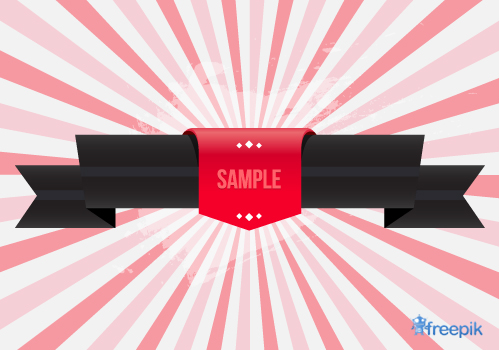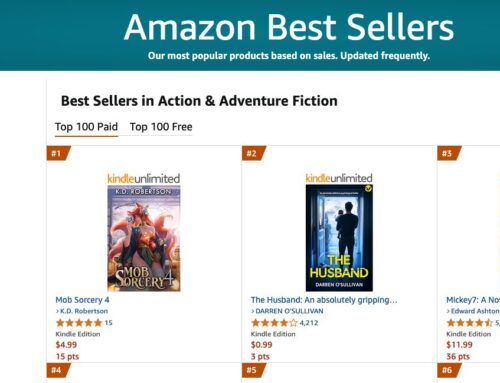 What should authors expect from a sample edit, and how do you obtain one?
What should authors expect from a sample edit, and how do you obtain one?
When hiring an editor, you may feel you’d like to see a sample of the editor’s work before you hire them. This may give you a feel for the pace of their work, and how they will present changes and corrections to you.
Before You Start
Before you ask for a sample edit, you should bear in mind it’s rather churlish to ask for a sample if you are not ready for an edit – the editor is doing this free sample as an unsaid agreement that you are interested in hiring them, and will do so if you like their edit. Asking for a speculative edit “to see what it’s like to be edited” is a waste of everyone’s time, and really frustrating for the editor, who just worked one or two hours for no reason, while the client was treating it like a sample of perfume at the mall.
You should therefore ask yourself:
- Have you finished writing your book?
- Are you ready right now to hire an editor?
- Have you worked out the cost of an edit with this service, and do you have those funds ready to go? Can you pay using the method specified by the editor?
If the answer to these questions is “yes” then you are ready to request a sample edit.
Information about sample edits
A sample edit will be 1000 – 1500 words, i.e. the first five to seven pages of your book. Sample edits are normally free, although some editors charge up to $50 for them.
Misunderstandings about choosing an editor
Your editor must like your book
An editor edits many, many books a year – some good, some bad, some excellent, and some rather awful. The way that an editor reads when editing is incredibly different to that of a reader reading for enjoyment. We are working on many levels to scan for errors, readability, plot points, continuity, characterization…it’s not a case of liking the book, but a case of whether the editor feels they have the tools to edit your book properly, professionally, and comprehensively in a way you will be comfortable with.
Your editor must enjoy your subject or genre
An editor doesn’t have to specialize by genre or subject if they follow the procedure for editing a book – all books are equal. If you do have a certain style, it may be good to see if the editor understands the genre well enough to edit the style of the prose. For instance, in Sci-Fi, made-up words are used, and in Fantasy, often sentences are written in an old-fashioned way.
You can easily check this in your sample edit. The editor doesn’t have to enjoy your genre. Communication is the key: make sure emails are answered promptly and clearly, and you understand their notes. That’s all you need.
You should choose someone you can relate to as a person, and maybe make friends
A good editor will communicate with you well, however you get on as people, because that’s our main job. It’s a mistake to be chummy with an editor, as you are potentially going to witness the slaughter of your book, and trying to come at a sore point after the edit with a pal you’ve had coffee with is going to be much more difficult than crafting a pointed, work-based email to your hired professional. I’m nice to my clients of course, but I keep it work-focused, and we maintain a mutual understanding that way. The nature of the beast is we have to be honest, and friends flatter rather than tell you how it is.
There are many authors who find themselves having to get edited again after “hiring” a friend or neighbor to edit their book – to disastrous effect, and more often than not, at the cost of the relationship.
Your editor must be local
There’s no reason for this to be the case. You should be able to get your whole edit done on email in this day and age. I would only recommend this in a corporate scenario, where board meetings on progress are essential, but most companies use Skype video calling in meetings anyway.
Remote editing saves you time and money, but one point must be observed: Make sure your editor is native to the language your book is written in, and not an offshore sweatshop hiring second-language English “editors”. Identify your editor online and do your research first.
What purpose does a sample edit serve?
There are different types of edits available to an author, but it may be difficult to carry out some of these with a sample edit.
A sample edit will most likely serve the following purposes:
- To show the proofreading skills of the editor, i.e. spelling and grammar issues picked up in reading
- To give the author an idea of how the marked up document will look
- To give the editor an idea of the book’s content and if they think they would like to edit it – this is a two-way street!
- To give the editor an idea of how they will proceed with an edit
A sample edit does not serve the following purposes:
- It does not show developmental editing, because the editor has to read the whole book to comment on plot arc and characterization. This is not possible in the first 5 pages of a book.
- It does not give the author an opportunity for a “freebie edit” – it’s likely an editor would start over once they read the whole book, and the edit has been done for the purpose of your intention to hire now
- It does not provide a “freebie” editing report for the author to work on points of the story
How should I send my sample?
You should try to send the sample as specified by the editor. Most editors prefer a Word document, and often it’s nice to see a synopsis or other part of the book so an editor can see if they can help you.
How long should a sample edit take?
Industry standard says a sample edit shouldn’t take more than a couple of hours. This means you can expect a sample back within a week, but you should ask the editor what the waiting time is in case there is a line.
How should I assess the edit I receive?
This is more difficult. If you need an editor to assess your spelling and grammar because you don’t actually know the rules, you are not going to know if the editor is correct or not. Sometimes, editing is more than rules, and goes into style, language use in character, and other elements that are more “feel” than anything else.
Basically then, you should see if you felt comfortable with the editor so far. Was your query answered amicably, and were you happy with the communication between you? Did you feel comfortable using the notes given? Were you surprised by some of the comments, and did they give you some home truths? If you feel you want to know more, ask questions.
Why did the editor reject my sample?
As an editor myself, I don’t take on samples that are not properly formatted in Word. That is because I edit digitally, using Review Tools. Other editors may be fine with PDFs. It’s all about finding a fit for your work process.
Other reasons can be because the book is not a topic the editor feels they can edit, or maybe the book uses language the editor feels they don’t understand enough about to help, such as foreign or technical terms.
Sometimes the book is so badly written, an editor knows they can’t get the book to a decent state within a reasonable editing time frame for the fee they would have to command, and for that reason, they may turn you down.
Sometimes the client has flagged themselves as “high maintenance,” leaving the editor in no doubt that the client won’t let them get on with the job of hacking their book apart sufficiently enough to do a good job.
You will nearly always be given a reason for why the editor doesn’t want to take on your job, and if this happens, revisit your manuscript and see what you can do to start your search once again.
Get an Editorial Review | Get Amazon Sales & Reviews | Get Edited | Get Beta Readers | Enter the SPR Book Awards | Other Marketing Services






















Leave A Comment